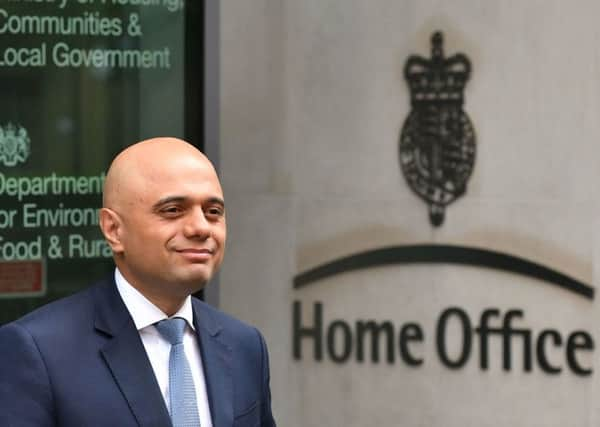The Yorkshire Post says: Why Windrush is a watershed. Sajid Javid's historic promotion


However these are not normal times. Mr Javid inherits a Home Office bedevilled by the institutional indifference that has been exposed by the Windrush scandal – and his predecessor Amber Rudd’s humiliating resignation after she misled Parliament.
And, while Theresa May will be hoping this appointment reassures BME communities who mistrust her administration, Mr Javid will need to show far more leadership than he did in the aftermath of last June’s Grenfell Tower disaster – the then Communities Secretary’s hesitancy was symptomatic of an uncaring government still stunned by the previous week’s election result. If he is to assuage the doubters, he needs to urgently enshrine the residency rights of Windrush families into law, as he promised to the Commons yesterday, while setting up a public inquiry into how bona fide migrants from the Caribbean were threatened with deportation.
Advertisement
Hide AdAdvertisement
Hide AdAs Alan Johnson and Charles Clarke, Home Secretaries in the last Labour government, suggest, this scandal could possibly have been avoided if Mrs May had not in one of her first acts as Home Secretary in 2010 dropped plans to introduce identity cards. Indeed there could still be some merit to such an approach as Mr Javid grapples with Brexit – and the small matter of guaranteeing the status of EU citizens already living here. An urgent review of immigration policy, and implementation, is needed.
As a self-made son of immigrants to this country – the Home Secretary was born in Rochdale and enjoyed an illustrious career as a global banker before entering politics – he should, at the very least, be more nuanced than his predecessors.
Yet, as Mrs May comes under sustained pressure to justify the decisions she took as Home Secretary over Windrush, the Prime Minister looks diminished ahead of Thursday’s local elections when the Tories expect to suffer significant setbacks.
From Sir Michael Fallon’s resignation on November 1 last year to Ms Rudd’s inevitable decision to quit on Sunday night, four Cabinet ministers have now been forced to resign in the past six months (the others were Priti Patel and Damian Green).
Advertisement
Hide AdAdvertisement
Hide AdHowever, surprisingly, Brexit – the most divisive issue of all – has not been a factor. All four have been due to lapses in personal, or political, judgement. This not only reflects poorly on the faith shown by Mrs May to her closest colleagues, but it also smacks of a certain arrogance that invariably inflicts all governments after a prolonged period in power.
Although James Brokenshire’s return as Communities Secretary sees one ally of Mrs May return to the Cabinet – his previous stint in Northern Ireland will have helped prepare him well for negotiations over Yorkshire devolution – the Prime Minister’s commitment to fighting political injustice appears hollow.
As such, Mrs May needs to remind her Ministers of the country’s expectations – and priorities – when it comes to day-to-day competence while, at the same time, offering a full response to the electorate’s understandable outrage over Windrush. For, as is so often the case, Ministers are, yet again, following public opinion and a desire in the country at large to stand by those Caribbean immigrants who made their home here after the war and who contributed so much to the diversity and prosperity of today’s Britain before being treated so appallingly.